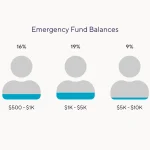
The purpose of the Responsible Finance Forum is to support the development of the agenda for inclusive and responsible finance. This report aims to facilitate discussions on new challenges to responsible finance and highlight the benefits of coordinating activities, particularly in the international development context. The report is expected to contribute to the growing data-sharing effort between institutions involved in responsible finance and to stimulate an interest in designing an efficient process for accumulating information. This report is intended for all stakeholders in the responsible finance sector, including policymakers, lenders, investors, and consumers.
The university has one of the most respected reputations in finance and sustainability. Its expertise in sustainable finance and the management of financial impacts are complemented by its strong teaching and research credentials. Its Initiative on Responsible Finance promotes scholarly research in the broad area of responsible finance and seeks to strengthen collaborative efforts across the university community and beyond. In addition to academics, the initiative also includes graduate students and practitioners in responsible finance. This enables the university to better serve the public through its research and education efforts.
The Principles for Responsible Banking (PRB) are a comprehensive set of guidelines that signatory banks must adhere to. They ensure that their strategy is aligned with the goals of society and the Paris Climate Agreement. With 270 member banks representing over 45% of the global banking market, the Principles represent an unprecedented effort to advance responsible business practices. The challenges of implementation of effective due diligence systems in the financial sector make it particularly challenging to implement these principles.
As the field of responsible finance continues to gain ground, its offerings continue to grow and a variety of acronyms have popped up. A few of these are useful in describing the various initiatives and challenges in the field. This explosion of acronyms is a reflection of growing interest in the topic and ongoing efforts to establish common standards and evaluate the efforts of different corporate and investment players. We will continue to follow these best practices to make responsible finance more accessible and sustainable.
Large institutional investors are influencing the strategic decisions of large corporations. The Climate Action 100+, a group of investors overseeing $32 trillion of assets, are influencing large corporations to disclose their financial performance and climate transition risks. The Church of England endowment fund and New York State’s pension funds recently voted against Exxon directors, protesting Exxon’s lack of response to climate change. While these developments are encouraging, the role of the RFO remains largely undefined in the UK.
In general, responsible finance is a good way to make an impact on the environment while also making sound economic sense. In the current climate, sustainable finance is becoming the mainstream way to finance a decarbonised world economy. Voters are placing increasing pressure on the financial industry to act against climate change. To slow down global warming, unprecedented amounts of capital are needed. The sustainable financial sector is starting to fill the gap by directing capital to green projects and social projects.




